Participation and Inclusion
We understand democracy as a continuous process. We advocate for open, diverse and inclusive decision-making processes that ensure the participation of as many people as possible.
When the public can actively participate in democratic processes, it is transformed from a passive recipient of government decisions into an empowered driver of change. Their democratic engagement is not limited to elections, but must also include the right to protest and activism as well as experimentation with new deliberative mechanisms.
Political participation plays a decisive role in the resilience of democracy, the reliability of the rule of law and the fairness of social development. Open democratic processes also build trust in institutions and connect communities.
The state must create a supportive policy and legal environment for public participation, paying particular attention to the inclusion of vulnerable and marginalised individuals and groups. If we want to live in a truly inclusive society, we need to hear and consider different voices and give space for civil society and the public to work together in decision-making.
At Danes je nov dan, we develop innovative digital tools and campaigns to promote specific participatory and deliberative mechanisms at international, national and local levels. In doing so, we enable people to participate in important decisions online and offline in an accessible and inclusive way. We place particular emphasis on overcoming civic apathy and reservations about active participation.
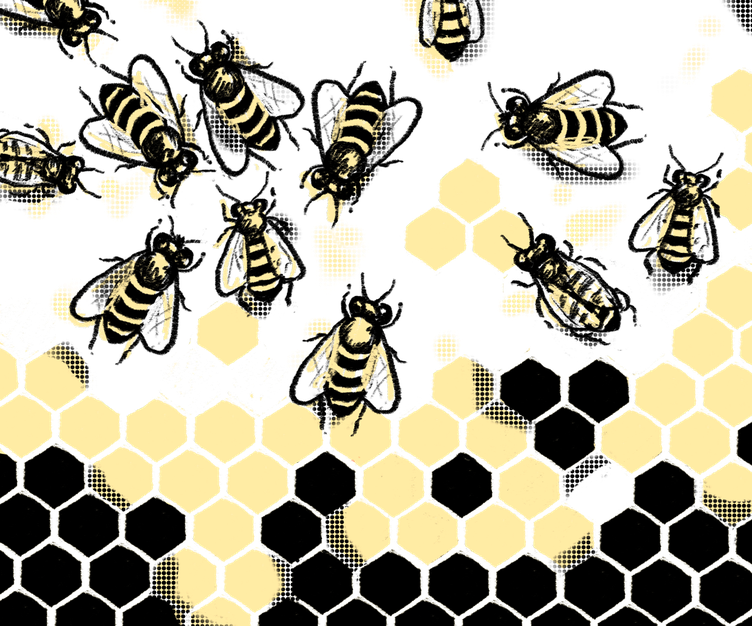
Projects
All projects
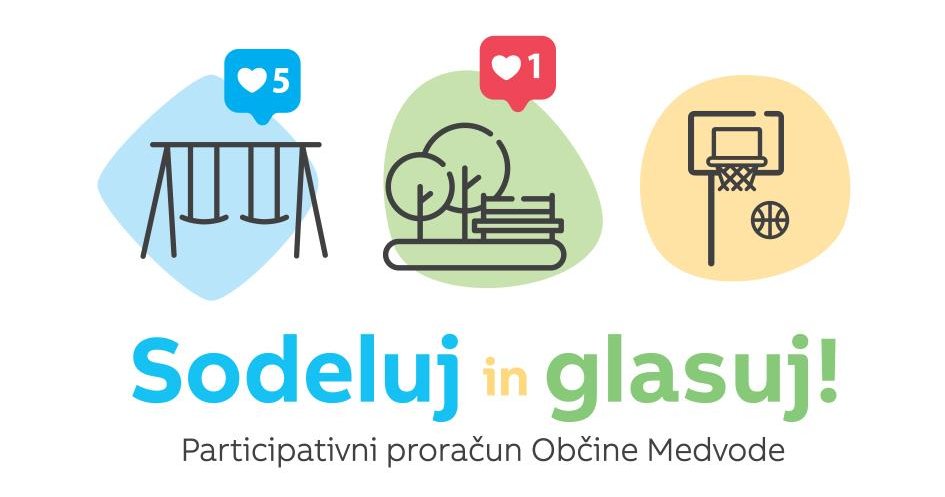
13. March 2025
After successfully supporting two rounds of participatory budgeting, we continued our collaboration with the Municipality of Medvode for a third cycle, using the open-source platform Consul. For projects in 2025 and 2026, the municipality will allocate up to 400,000 euros. Once again, residents aged 15 and above will be able to submit their ideas and vote on them. This continues the practice of actively involving the local community in shaping a municipality that reflects their needs.
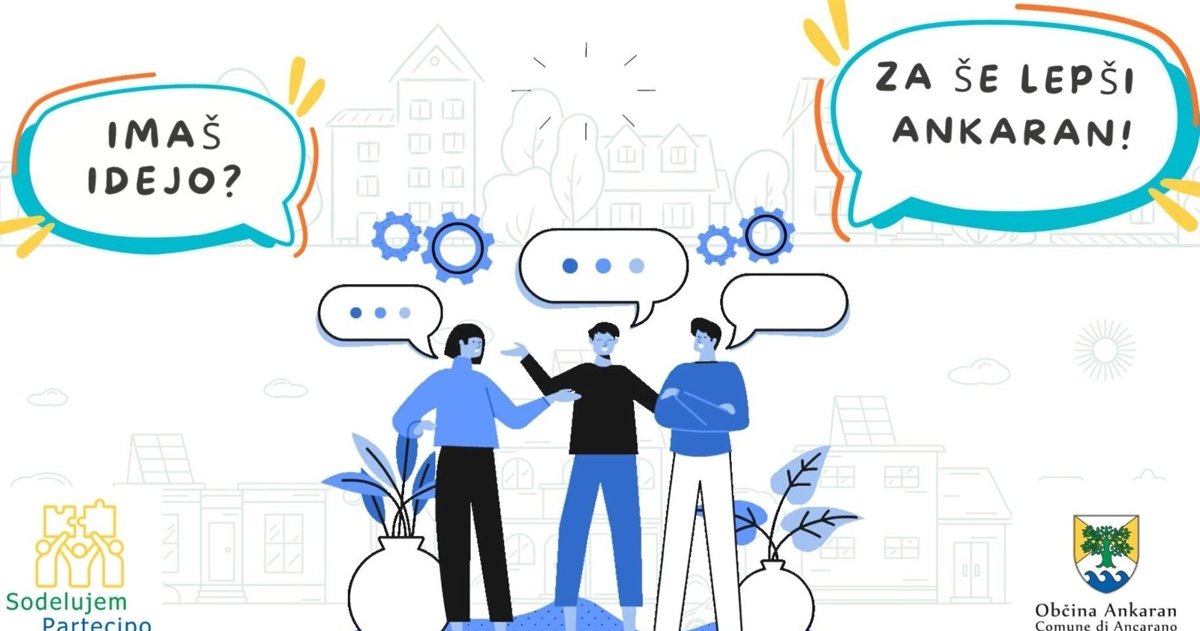
27. January 2025
Using the open-source platform Consul, we supported the Municipality of Ankaran in implementing participatory budgeting. Residents turning 15 or older in 2025 were invited to propose projects worth a total of 100,000 euros and vote on which ones should be carried out. This way, we strengthen the role of citizens in deciding on their shared future and promote the development of projects grounded in the needs and ideas of the community.
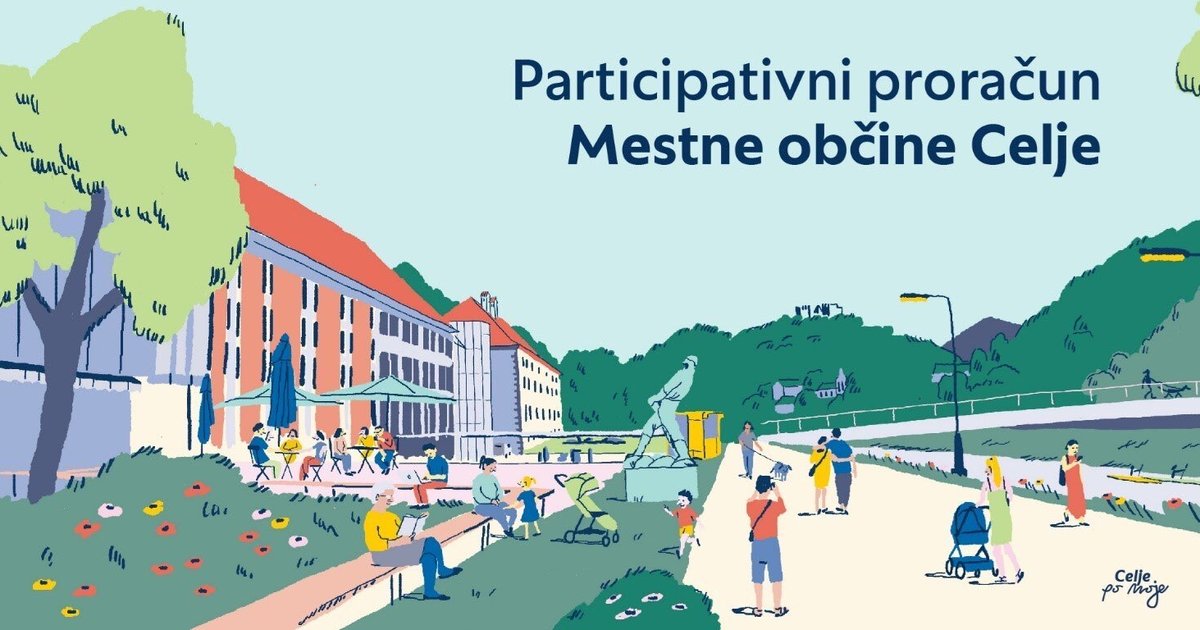
8. January 2025
Using the open-source platform Consul, which enables easy online submission, tracking, and voting on proposals, we supported the Municipality of Celje in implementing participatory budgeting. Citizens were invited to help decide how 250,000 euros from the municipal budget will be spent across eight local areas. Each area will receive 30,000 euros, with an additional 10,000 euros dedicated to youth-led projects by residents aged 15 to 29.

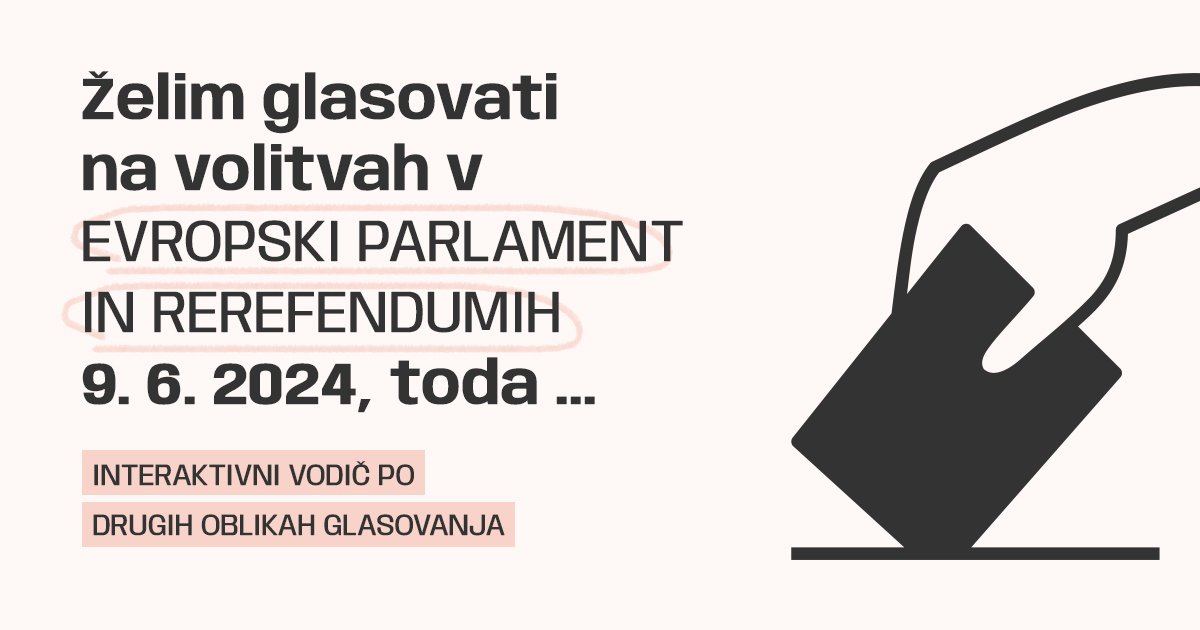
20. May 2024
As usual at DJND, we have once again produced a guide for people who, for various reasons, are unable to participate in European elections and referendums like others. It is aimed at people who live abroad, people with disabilities, those who will be elsewhere in Slovenia on election day, etc. – in short, for everyone who cannot vote in the usual way. We create these election guides because we believe in the importance of political participation and actively promote it.

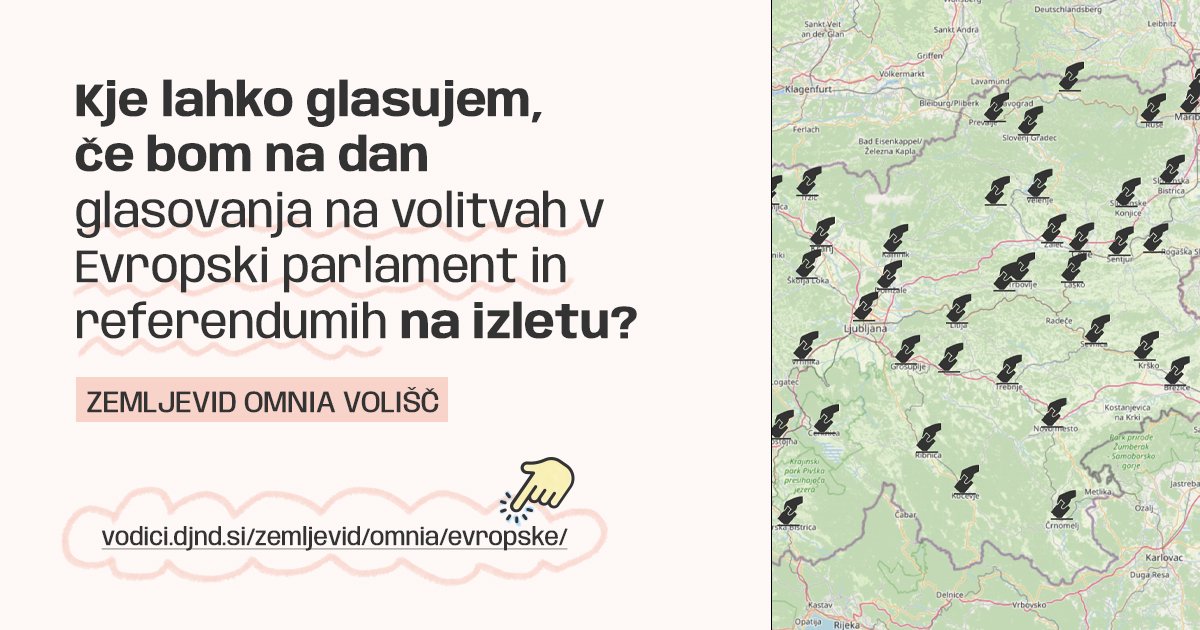
20. May 2024
OMNIA polling stations, which allow voters to participate in elections even if they are outside their home constituency on election day, are organised throughout the country. To encourage voter turnout and facilitate access to polling stations, we created a simple interactive guide to OMNIA polling stations for the 2024 European Parliament elections and the referendums taking place at the same time. As voters need to register their intention to vote at an OMNIA polling station in advance, we also added instructions on how to do this to the map.

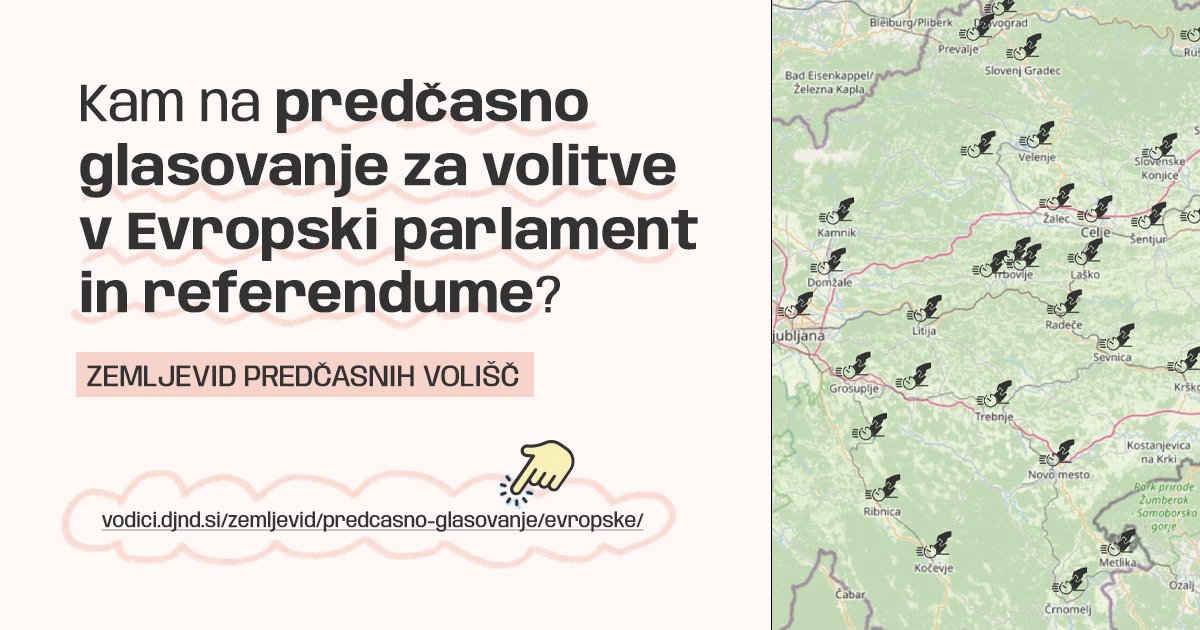
20. May 2024
The map of polling stations for early voting is one of the online tools we use to actively encourage voters to fulfil their civic duty. For the elections to the European Parliament and the referendums taking place at the same time in June 2024, we created, among other things, a simple interactive map of polling stations. The map shows all polling stations and users can click on the nearest polling station to find out more about it.
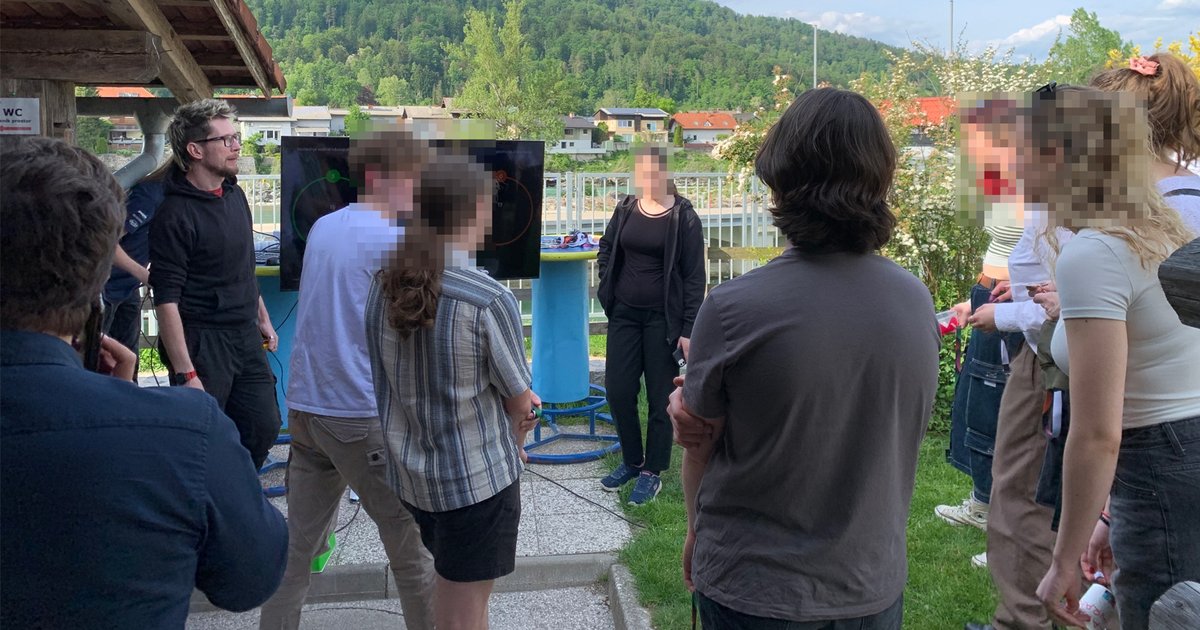
15. May 2024
Danes je nov dan is part of an international consortium that, within the Erasmus+ Phygital project, co-funded by the European Union, is developing an innovative tool for municipalities, youth centers, and other organizations. The tool combines a digital interface with physical interaction, enabling the engagement of young people and encouraging their active participation in expressing opinions and making collective decisions. We tested the tool with a group of young people at the Za in proti summer camp, and their feedback has been crucial for the project's progress and the further development of the tool.
In cooperation with Tree Company.

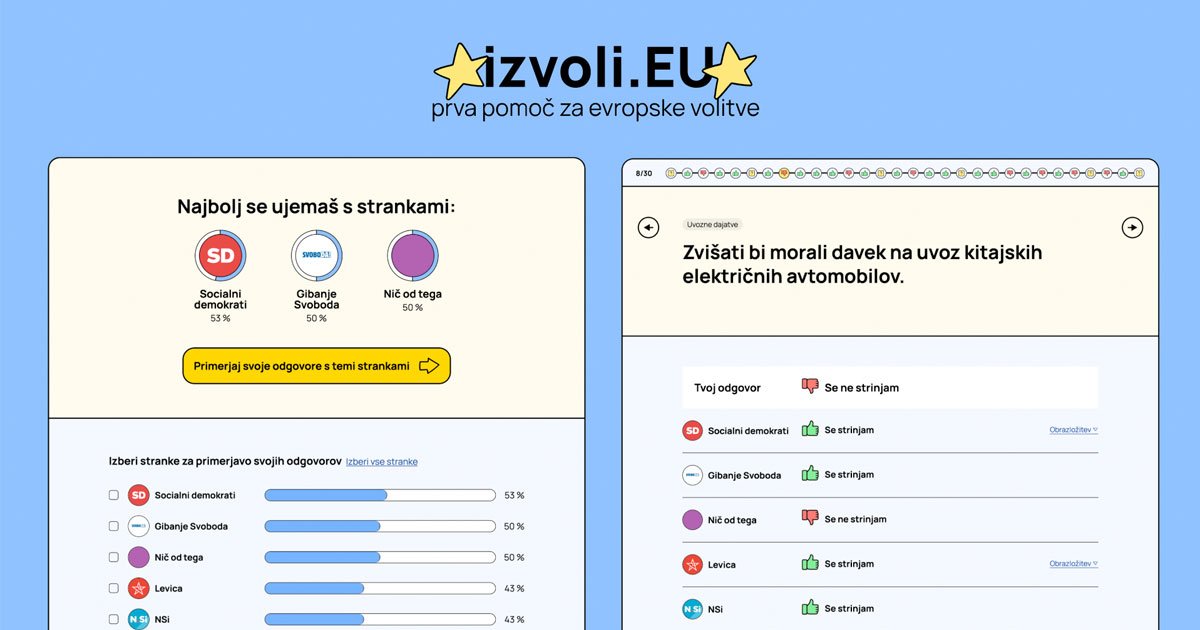
8. May 2024
We have developed the online application izvoli.eu in cooperation with the international network VoteMatch Europe to make it easier to decide in the European Parliament elections. The application contains 30 statements that have been addressed by almost all lists running in the elections. Users can also take a stance on these statements and find out which political option they are closest to in terms of their level of agreement. Similar questionnaires were also answered by parties running on European lists in other Member States, so users can also use these statements to check where they stand in the broader European context.

1. April 2024
The open source platform Consul is designed for the implementation of participatory budgeting in various organisations. We have also installed it in the municipality of Trebnje, which has invited its residents to have a say in the use of municipal funds. The introduction of participatory budgeting increases the transparency of municipal finances, actively involves the population in decision-making about their common future and improves life in the municipality based on community proposals.

1. March 2024
The open source platform Consul is designed for the implementation of participatory budgeting in various organisations. We have also installed it in the municipality of Novo mesto, which has invited its residents to have a say in the use of municipal funds. The introduction of participatory budgeting increases the transparency of municipal finances, actively involves the population in decision-making about their common future and improves life in the municipality based on community proposals.

1. March 2024
The open source platform Consul is designed for the implementation of participatory budgeting in various organisations. We have also installed it in the municipality of Tržič, which has invited its residents to have a say in the use of municipal funds. The introduction of participatory budgeting increases the transparency of municipal finances, actively involves the population in decision-making about their common future and improves life in the municipality based on community proposals.
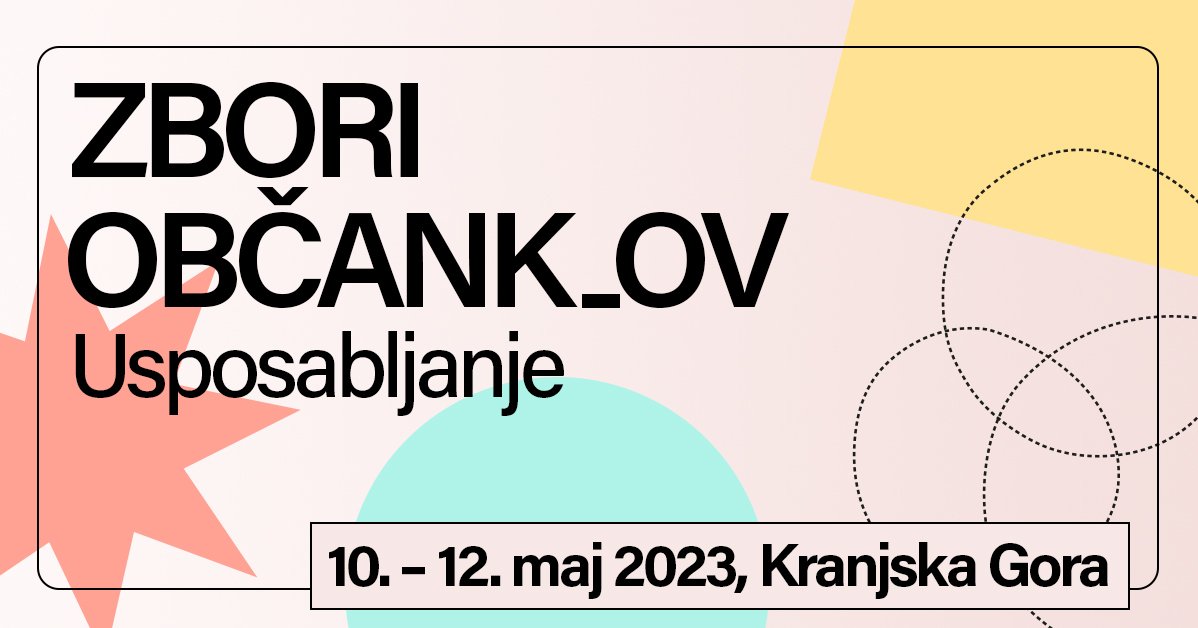
12. May 2023
Between 10–12 May, 2023, we hosted a training on organising and leading citizens assemblies in Kranjska Gora. The training was organised in collaboration with lecturers from the Polish organization "Center for Blue Democracy." Citizens assemblies are becoming increasingly widespread and recognized internationally as a way to involve the public in local government activities. Such forums need to be well-designed, and conducted with trust, ease, and joy. Participants at the workshop learned about the process of organizing citizen forums according to the principles of "design thinking."


